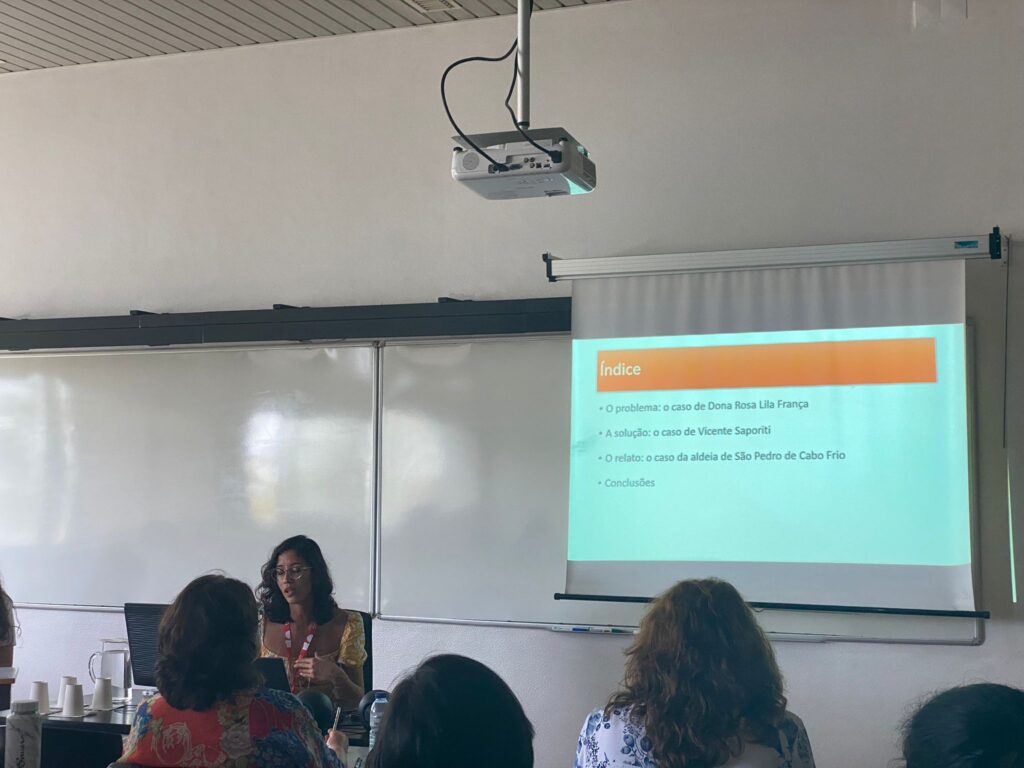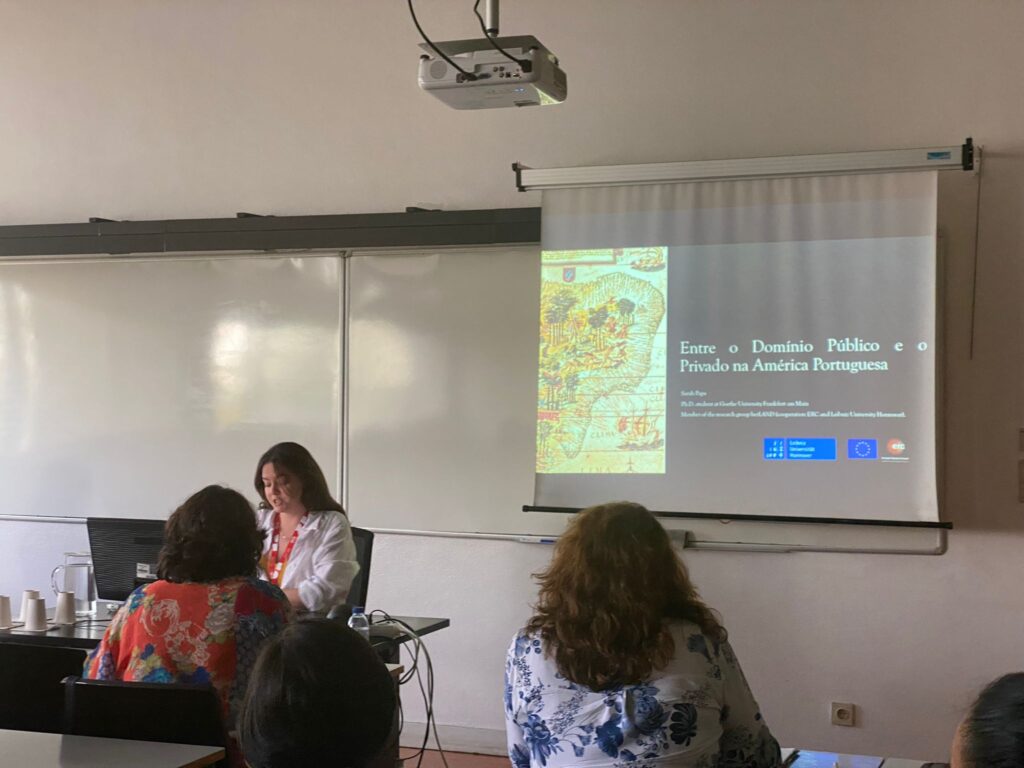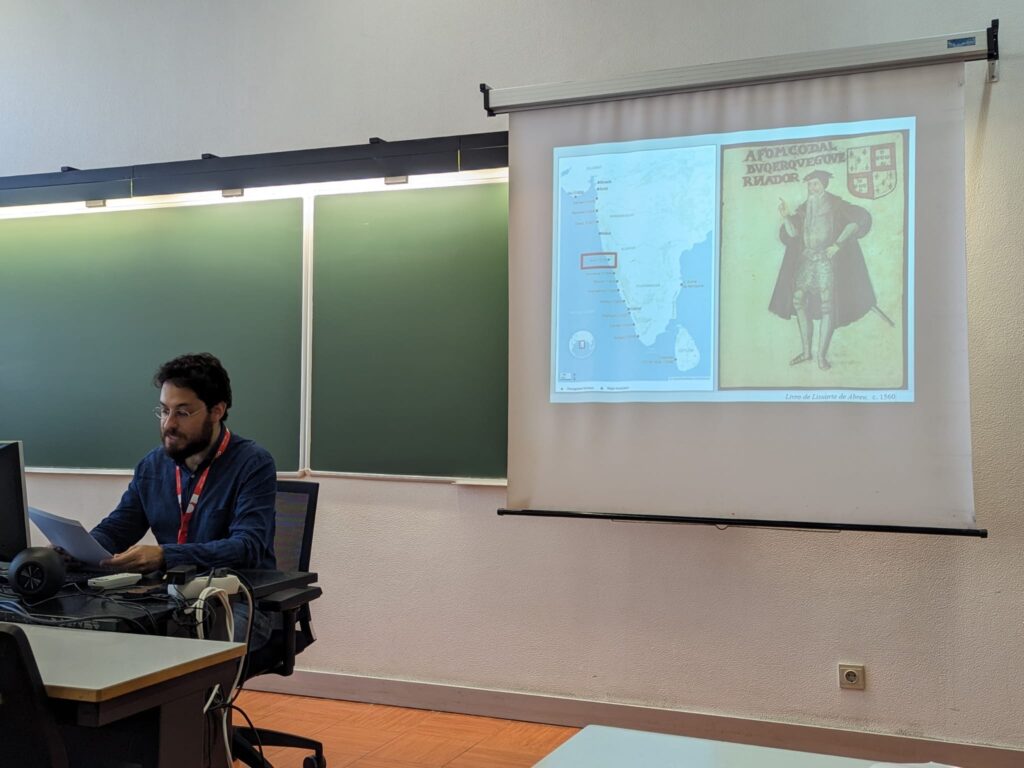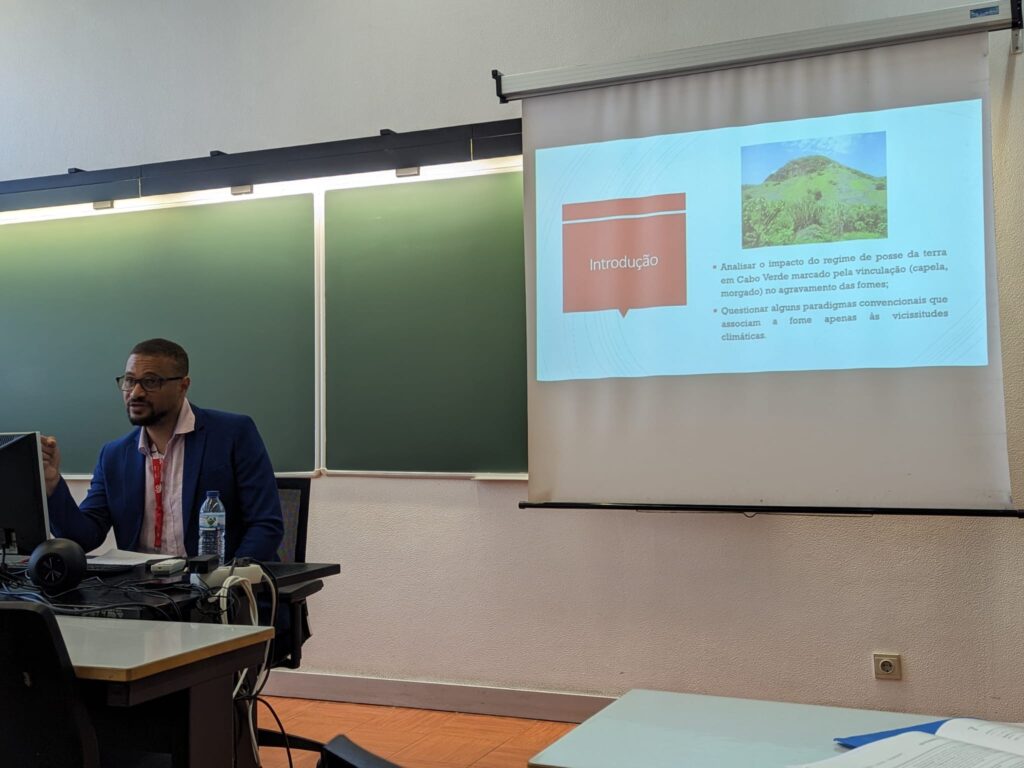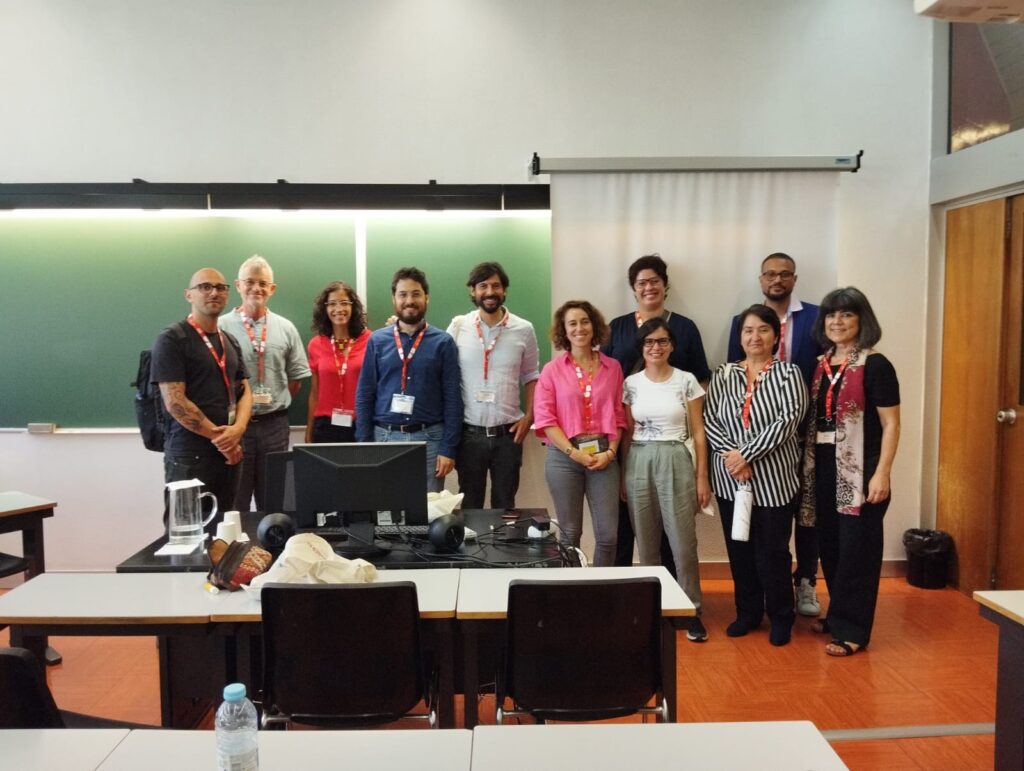Part of the IberLAND team was reunited in Coimbra for several events. They presented the project in an open session co-organized with the Center for the History of Society and Culture, chaired by Professor José Pedro Paiva, the director of the Center. This gathering brought together researchers from this institution and students from the University of Coimbra, engaging the issue of the project and its organization.
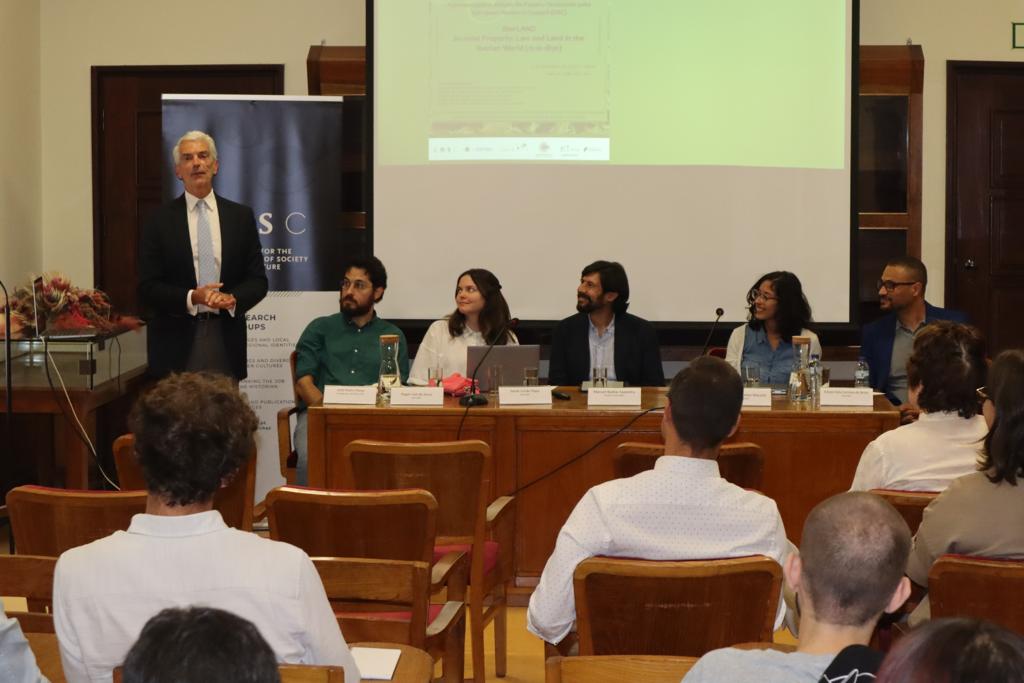
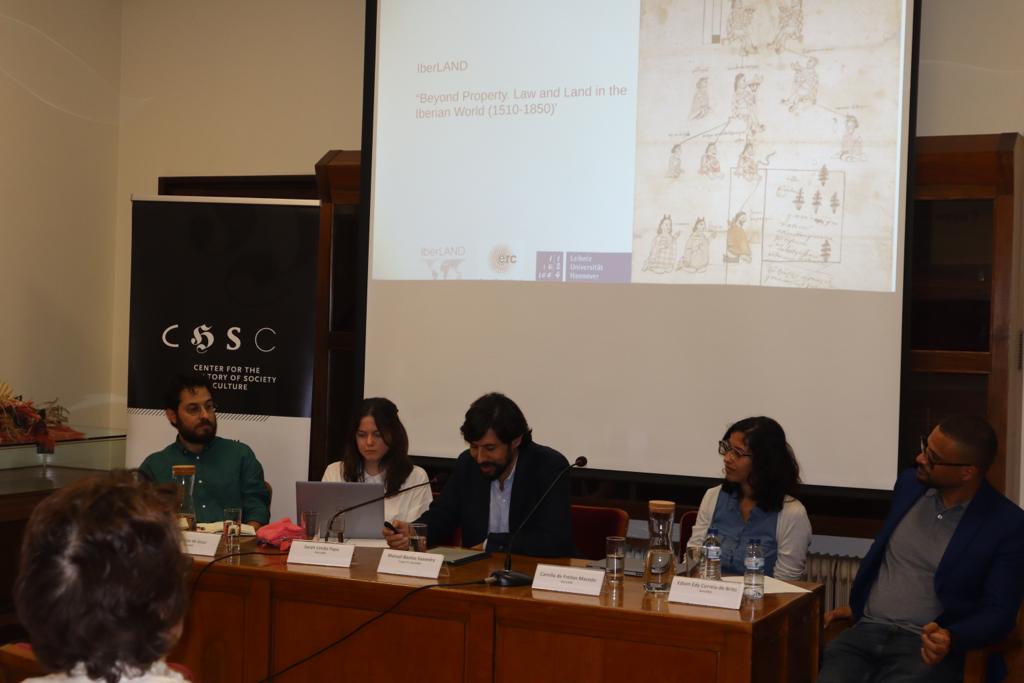
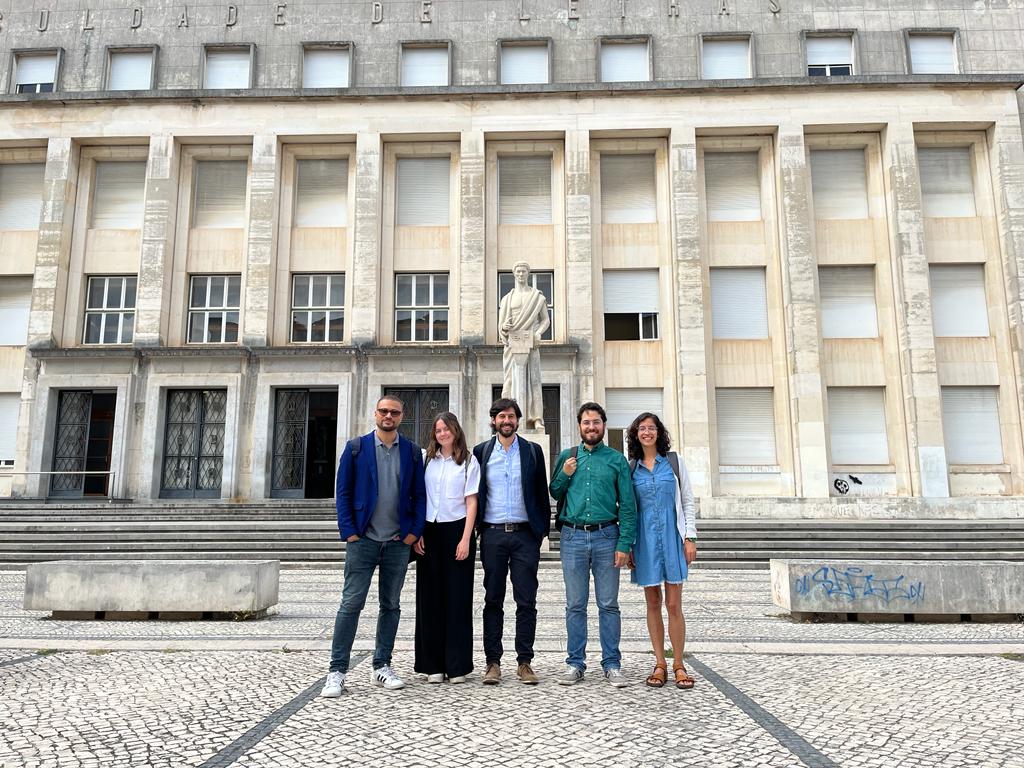
The team also participated in the IV International Congress on ‘Soberania Alimentar: Dinâmicas de produção e abastecimento na longa duração’, as part of the XI Rural Encounter RePort and XVIII Agrarian History Congress – SEHA. The team presented and debated papers in two panels along with other colleagues regarding land relations between the 16th and 19th centuries.
In the first panel (Tierras, jurisdicciones y procesos: Transformaciones en la regulación del acceso a la tierra en la América hispana y portuguesa (s. XVIII-XIX)), they discussed the role of land relations in the state-building processes that took place in Latin America during the 18th and 19th centuries. This discussion involved small-scale observations of cases from Mexico, Colombia, Brazil, and Argentina. It also explored the relationship between state-building and the maintenance of colonial practices within a new context of land markets and the emergence of a state-based identity. The significance of these processes, though only sampled in the panel, can help us understand the importance of proper contextualization before discussing legal institutions.
In the second panel (Más allá de la propiedad: nuevas aproximaciones al estudio de la relación entre tierra y derecho en el mundo ibérico (s. 1500-1860)), participants discussed contracts, practices, discourses, and rituals that shaped land relations in the Iberian world. This discussion was based on small-scale observations of cases from Peru, Argentina, Brazil, Mexico, Cabo Verde, Angola, and Goa. The conversation revealed that similar terms (enfiteusis, possession, mancomunidad, fatiota, foro, parroquia, among others) were used and adapted to each local context. Additionally, in colonial contexts, local rituals were adjusted and given a normative value recognized by Europeans. As with the first panel, the significance of these processes, although represented by a small sample, underscores the importance of proper contextualization before delving into discussions about legal institutions.
